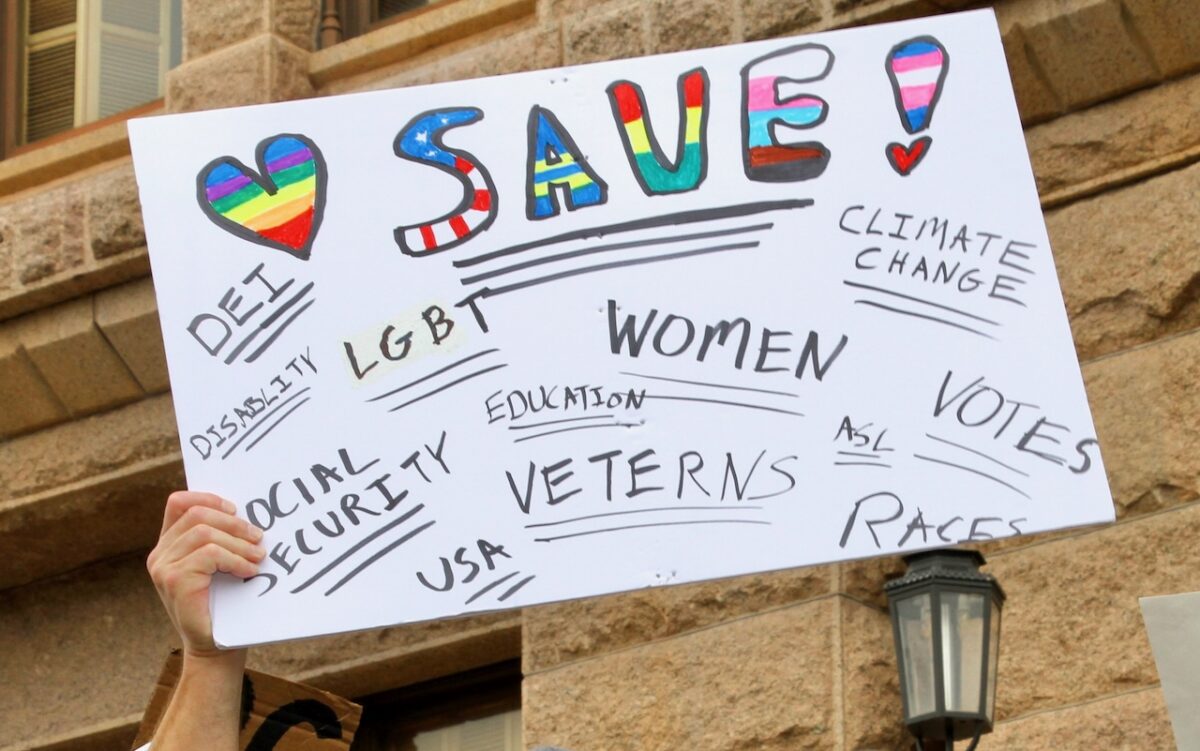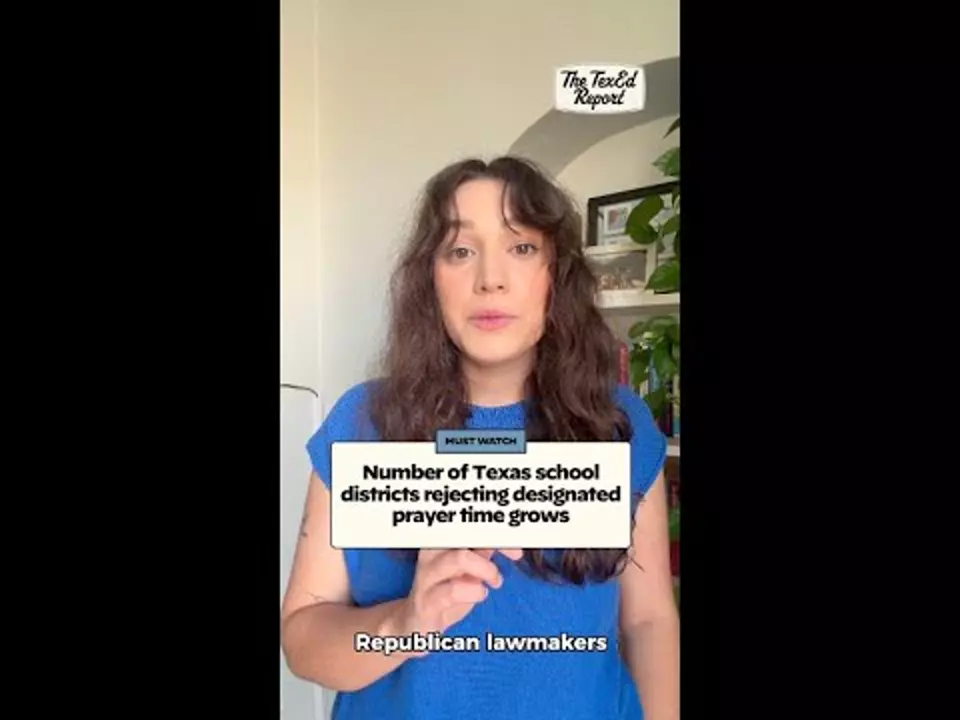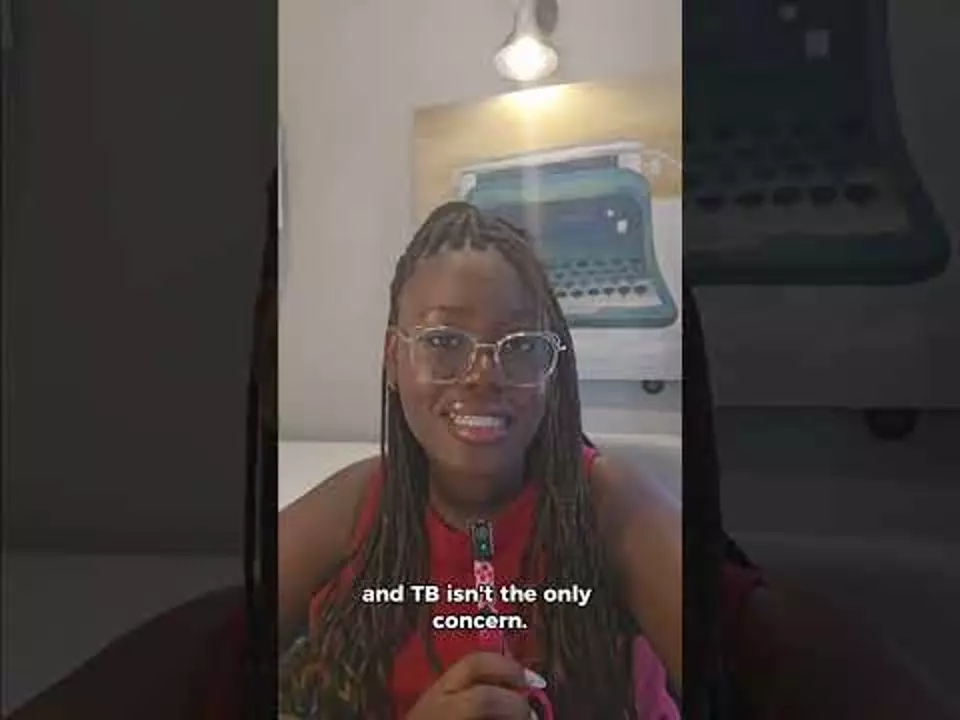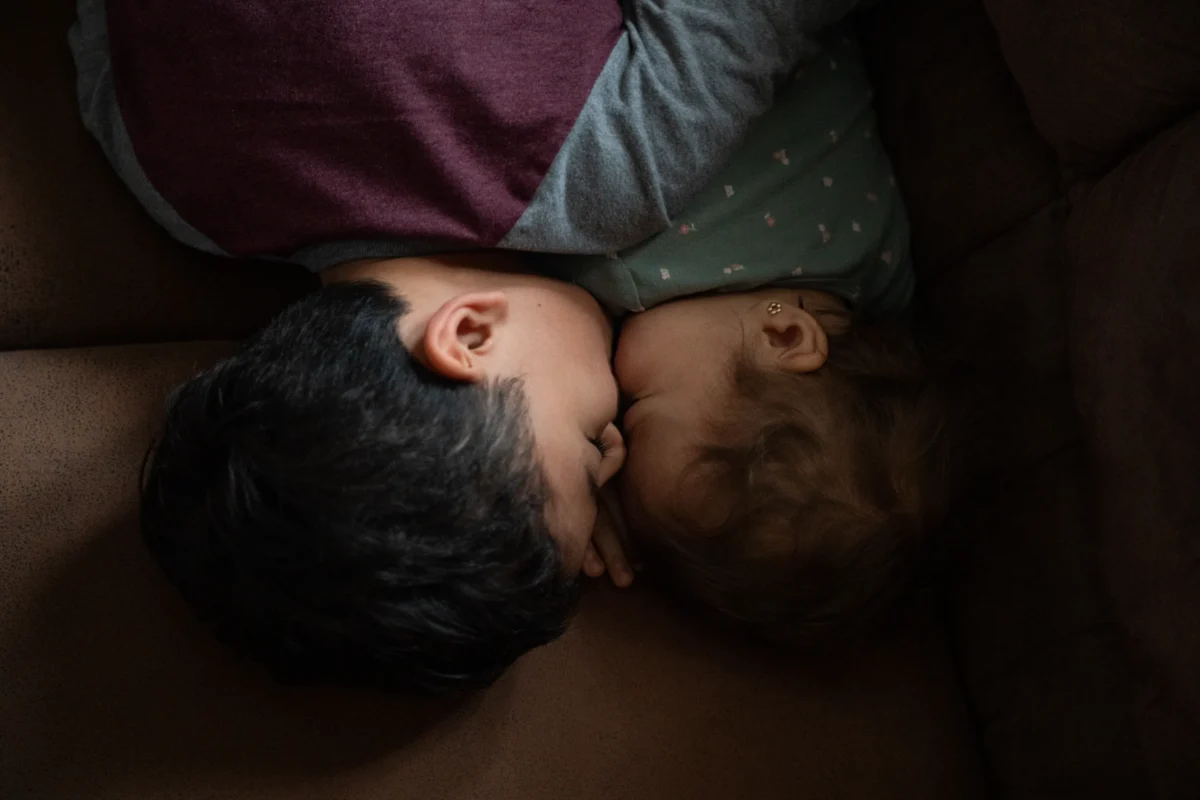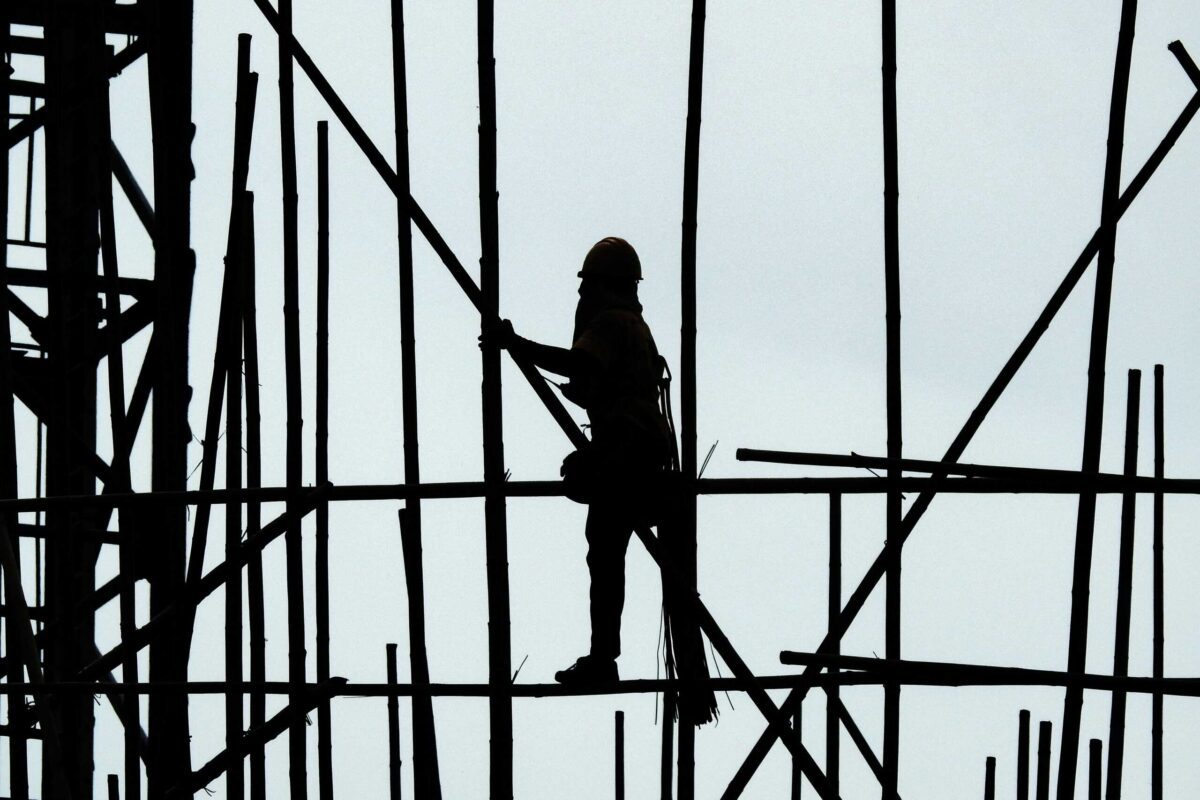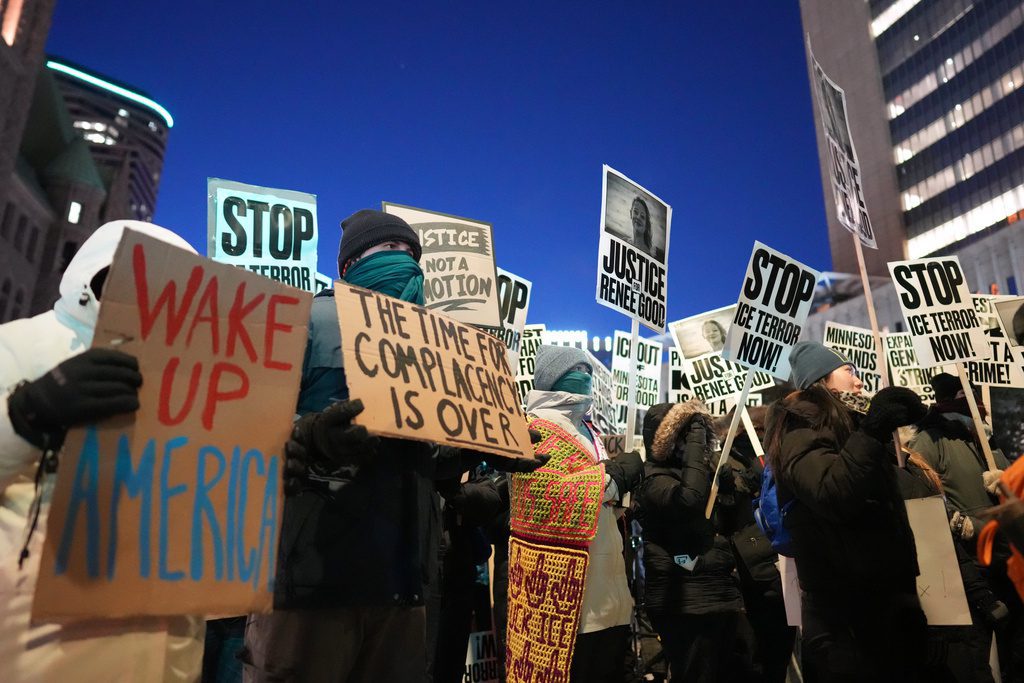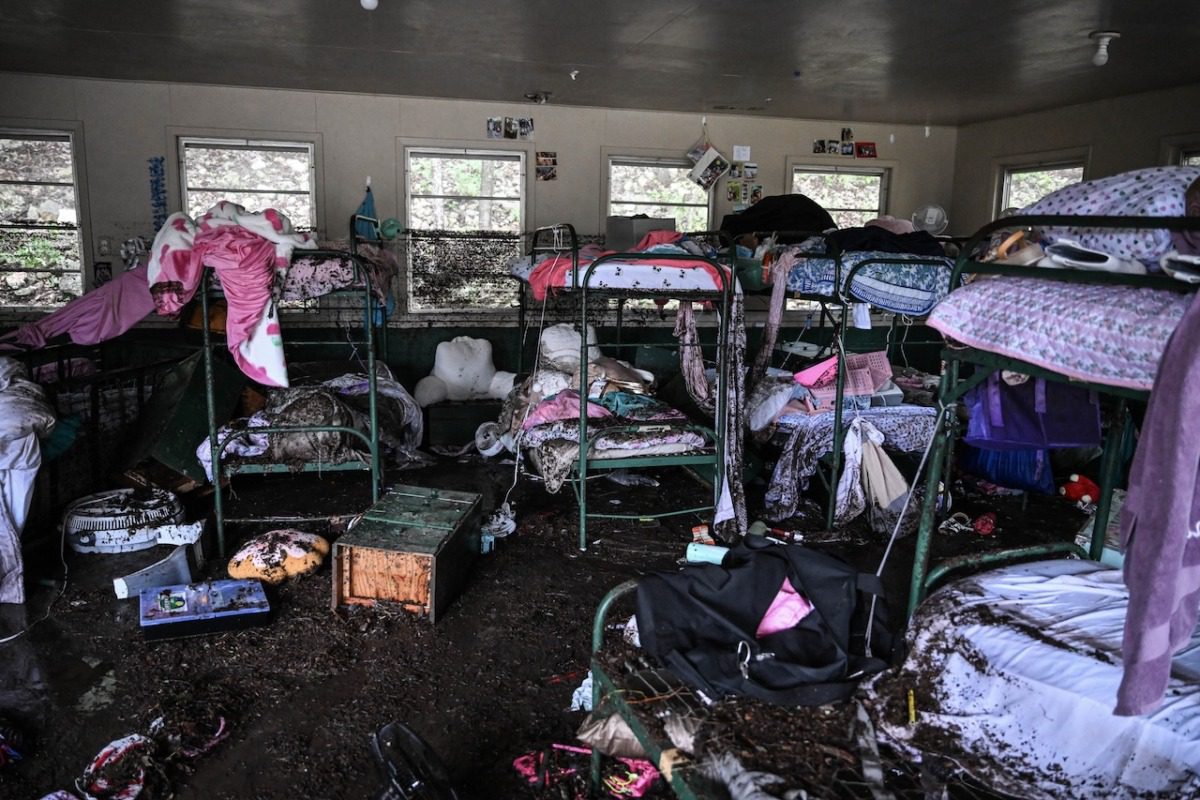
A view inside of a cabin at Camp Mystic, the site of where at least 20 girls went missing after flash flooding in Hunt, Texas, on July 4, 2025. (Photo by RONALDO SCHEMIDT/AFP via Getty Images)
It was, ironically, at an all-girls summer camp where I learned how to have hard conversations.
I packed my trunk and duffle, both tacked with stickers and trinkets, and took the hours-long ride to a small Vermont town, most alive June through August. Children from all over the country migrated to the scenic lake for fun and freedom, donning green shorts, staging as peppy pine trees and descending the hillside with the chatter of bees.
This summer will be the best summer yet.
Whether in a notch of the green or on a white, wicker bench overlooking the lake, I learned as a camper—and later as a counselor—that addressing challenges required great care.
There are several parts to problem-solving conversations. You eventually address missteps and discuss how you plan to improve a situation, but first—always first—is the soul work.
How are you feeling? How has this affected you? What has been challenging for you? How can I help you process what’s happened? What resources can I offer for healing?
For many sleepaway camps, this process is necessary for maintaining a 24/7 community where it’s safe to make mistakes, be different from others, and learn from both. In my camp community, counselors don’t believe in punishment or placing blame for the sake of it. We’re taught how to handle an array of issues appropriately and always with compassion.
As the floods in Kerr County, Texas, reached unprecedented water levels, the coverage simultaneously rose to the top of the news cycle, and I was soon reminded that many of us are losing that compassion. We’ve forgotten the golden rule: We should always be centering people before politics. Under photos and videos of missing children and mourning families, the comment sections were shocking—and remember, I’m a journalist working through the most divisive political landscape in US history. I’m not easily shocked.
Here are a few narratives that I find disheartening.
Let’s hold leaders accountable—after we help
The narratives that have gotten the most engagement are those that exploit this tragedy to further political agendas. While there are tons of relevant stories surrounding these floods—federal budget cuts, lack of climate action, damning state legislation—we need to consider an appropriate time to explore those areas. Maybe it’s not before parents know if their children are dead or alive.
As of Monday evening, there are still ten campers missing from Camp Mystic and even more people missing throughout the county. Might we think of the families and hold off on speculation and political flame-throwing until the rain has stopped?
Heated social media discourse within the first 24 hours was insensitive to people going through life’s greatest pain. No matter the challenges and drastically opposing views this country holds, we must always attempt to put people first. I want both the media and consumers to be more thoughtful about how we choose to respond in the thick of tragedy.
My home state doesn’t deserve death or destruction more than another
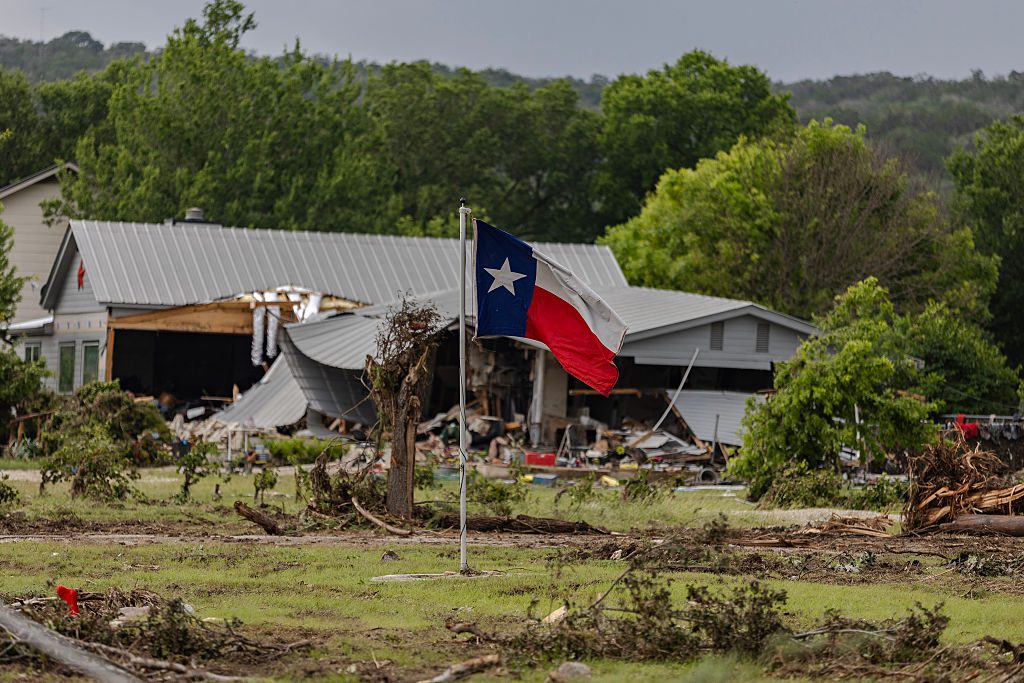
HUNT, TEXAS – JULY 6: A Texas state flag flies in a yard filled with debris on July 6, 2025 in Hunt, Texas. Heavy rainfall caused flooding along the Guadalupe River in central Texas with multiple fatalities reported. (Photo by Jim Vondruska/Getty Images)
As Texans, we have seen and heard a lot of nasty comments. There is a presumption that red states, particularly those as historically conservative as Texas, consist of populations that believe the same things, rally for hate, and all vote the same way. There’s this messaging that we deserve whatever tragedy we’re enduring that day, because, hey, we voted for it.
I’m flummoxed that this still needs to be said, but Texas is an incredibly diverse state with residents that have different values and vote—or don’t vote—accordingly. Our voting record is no less a symptom of who has political power than the ultra-progressive state of Massachusetts. Gerrymandering, voter suppression, and structural inequities shape election outcomes in ways that don’t reflect the true will of all Texans.
And while all of this is true, how does that justify the death of innocent people, particularly children who don’t have a dog in the fight? I don’t care if these campers were children of klan leaders; they didn’t deserve to die. The implication of such across social media is an alarming symptom of the desensitization of the American people.
What we should remember as we search for victims, answers about this flood
- Regions in Texas, particularly Hill Country, receive flood watches regularly, year-round
- Specific flash flood warnings weren’t sent out until after 11 p.m. CDT on Thursday night
- Much of this region struggles with cell phone reception
- Emergency warnings started just after 1 a.m. on Friday and escalated to a “catastrophic” level around 4 a.m.
- The dramatic rise in water levels happened between 2-7 a.m., going from one foot to 36 feet during that time
- The death toll has surpassed 100 people
- There were other summer camps in the area where children and staff narrowly survived
- RV camps were washed away, and there are dozens of people missing throughout the county
We can do better
Natural disasters are layered, and I’ll be the first to insist on coverage of all the ways our legislation, lawmakers, and leaders failed these families—holding politicians accountable is an organizational and personal value. Our staff will explore all the technical aspects of why this level of disaster wasn’t predicted in advance. Unfortunately, the Kerr County floods will be added to the running list of events where we could have reduced casualties if blank measure had been taken.
I know this perspective might be confusing—many journalists have been vocal about the need to report on the political implications of a tragedy immediately. Anchors, writers, and even activists are constantly faced with the conundrum of timing. Many consider being first to tell a part of the story, coming up with several different angles, and doing what they can to drive engagement, which often rules corporate goals.
How many people watched? How many people commented? How many people clicked on the article?
There are times when these things can be prioritized, but we have to be open to different goals at times and use the judgment we’ve been entrusted with to know when and how to tell those stories.
My perspective, especially in this case, is undoubtedly biased and based on a deep understanding of summer camp cultures (although far from perfect) and my own history of devotion and care for children who weren’t my own, as well as staff who sacrifice to create magical, life-changing summers. Counselors and even the camp’s director lost their lives trying to save children from the flood waters.
As journalists, we must avoid inflicting further harm to the surviving victims—people who will want answers, but first want their babies honored and their neighbors remembered.
As a society, we should practice more empathy and discernment about what we share online. If we’re all fighting for this and that but have forgotten the human consequence, we’ve really lost the plot.
Support Our Cause
Thank you for taking the time to read our work. Before you go, we hope you'll consider supporting our values-driven journalism, which has always strived to make clear what's really at stake for Texans and our future.
Since day one, our goal here at COURIER Texas has always been to empower people across the state with fact-based news and information. We believe that when people are armed with knowledge about what's happening in their local, state, and federal governments—including who is working on their behalf and who is actively trying to block efforts aimed at improving the daily lives of Texas families—they will be inspired to become civically engaged.






